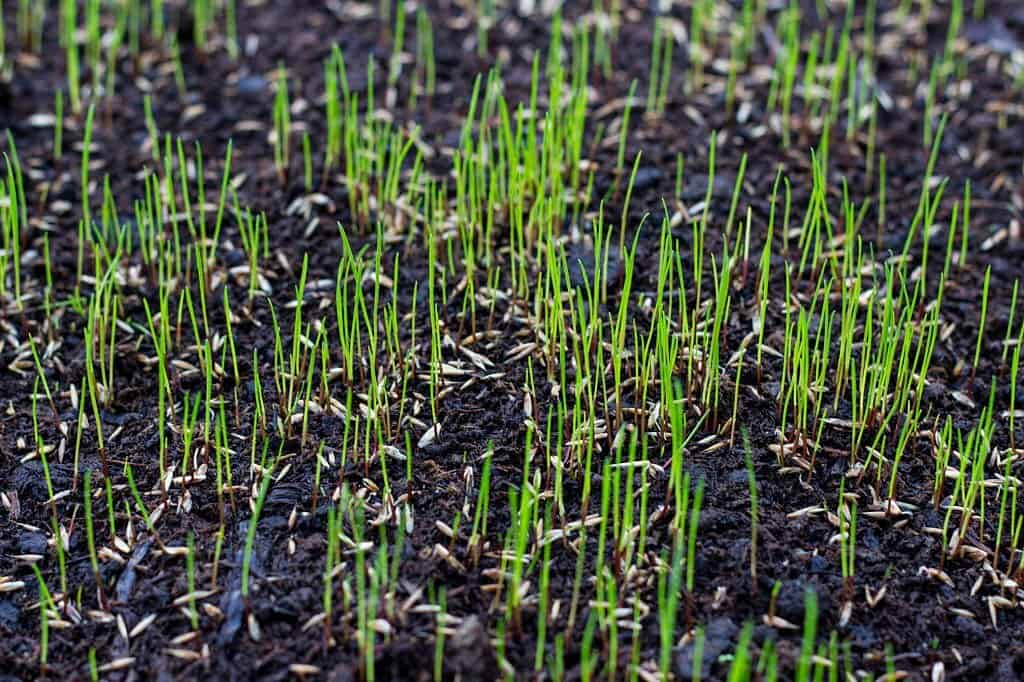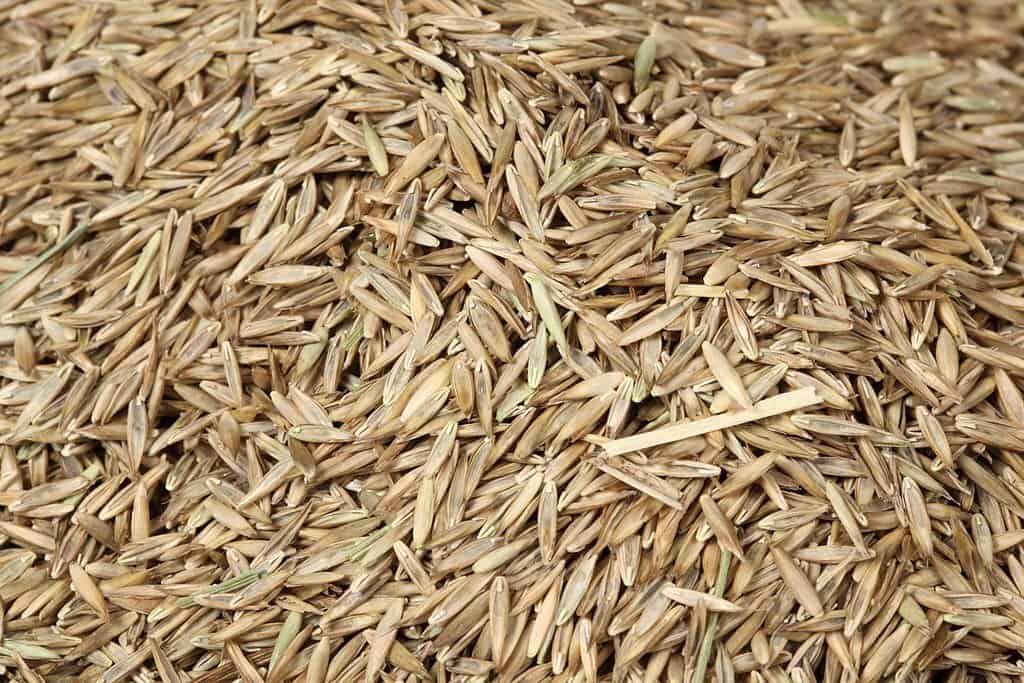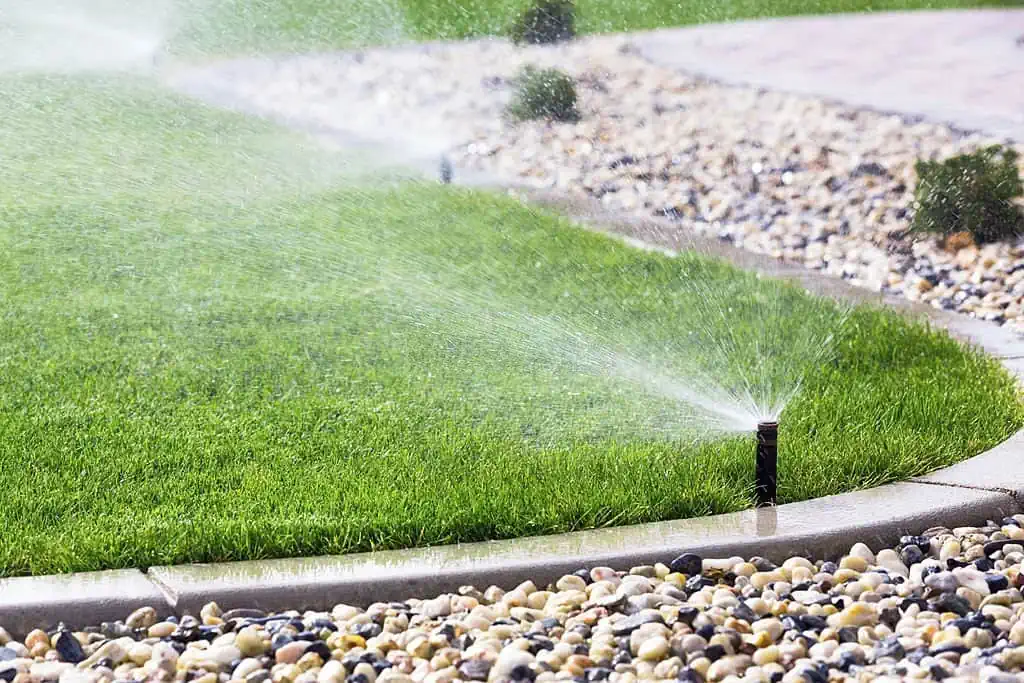Do you know how long grass seeds can survive without water? It’s essential to comprehend how long grass seeds can survive without water, whether you’re a seasoned gardener or a novice.
After all, regular watering is necessary to grow and maintain lush, green grass, especially during dry seasons. How would your grass seed fare if you neglected to water it for a few days or a week?
Depending on whom you ask, grass seed can last up to a month without water, while some claim it can only survive for one or two days. What, then, is the reality?
This article will examine the scientific basis for long grass seeds’ ability to survive without water. It will also look at a few things, such as grass kind, condition of the soil, and temperature, that influence the survival rate of grass seed.
The Importance of Water for Grass Seed Germination
It’s critical to comprehend the significance of water in germination if you’re wondering how long grass seeds can survive without water. Water is one of the most important things to consider while sowing grass seed.
For grass seeds to sprout and flourish, water is necessary. The grass won’t grow, and the seeds won’t germinate without sufficient watering. But how long until grass seed perishes if it lacks water?
Underwatering and overwatering both carry risks. Overwatering might cause the seed to decay, which can stop it from sprouting. Keep the soil equally wet; however, not drenched to promote good germination.

Understanding the germination process of grass seed is essential to providing an answer to this topic. Water must absorb and activate the enzymes required for grass seed germination.
The seed will start to absorb water and expand after the enzymes are turned on, which will cause the seed coat to split open and the first root and shoot to appear. During this crucial time, the seed must have enough moisture to survive; else, no grass will develop.
A moisture content of 50% to 70% of grass seed is optimum for its weight. The seed must have this amount of moisture to sprout and develop. This does not necessitate constant water-soaking of the seed, though.
The Effects of Drought on Grass Seed
Drought conditions can significantly impact the germination and development of grass seeds. When grass seed is exposed to drought, it may lose moisture and perish. However, several variables will affect how long it takes for the seed to expire.
Due to how necessary sufficient moisture is for grass seeds to thrive, they can suffer significantly from drought. Lack of water can cause grass seeds to dry out and die quickly, making it harder for new grass to take root. A lack of water can also make grass seeds more vulnerable to pests and diseases, harming the seedlings even more.

The grass seed’s stage of development is the first consideration. More regular watering is needed for newly planted seeds than those with established roots. The kind of soil is the second element. Sandy soil has to be watered more frequently since it dries up more rapidly than clay soil. The weather is the third element. Grass seed needs more regular irrigation in hot, dry regions than in colder, wetter settings.
Growth stunting is one of the significant impacts of lack of moisture on grass seed. Lack of wetness can cause seedlings to grow shallow roots, making them more susceptible to environmental stresses like high temperatures.
The formation of thatch is another consequence of dryness on grass seed. Thatch is the accumulation of dead grass between the soil and the grass blades. It may stop water and nutrients from getting into the soil, worsening drought conditions.
It is vital to ensure the soil is moist, although it should not be too wet or soggy. It is essential to avoid drought’s detrimental effects and, in the same vein, not go overboard. By watering the lawn regularly, it would thrive, especially during dry spells. Adding organic matter to the soil can also bolster its moisture retention, encouraging healthier grass development.
Tips for Watering Grass Seed
Although watering grass seed might be difficult, it is achievable with the appropriate methods. The following advice is necessary for watering grass seeds:
- As was already said, it’s essential to maintain the moist soil when watering seedlings evenly; however, not soaked. To guarantee even watering, mist the seedlings multiple times throughout the day with a sprinkler system.
- A fine mist nozzle will help maintain even watering and keep the soil from compacting.
- Avoid overwatering because it can cause the seed to decay and inhibit germination. Finding the ideal balance between watering too much and too little is crucial.
- Observe the weather. The weather can significantly influence the soil’s moisture. It’s crucial to keep an eye on the weather and act accordingly.
By following these tips, you can ensure that your grass seed thrives and establishes a robust root system, making it more resilient to drought conditions.
Common Mistakes to Avoid When Watering Grass Seed

Watering grass seed is crucial; if done incorrectly, it might harm your lawn’s growth ability. These common missteps when watering grass seeds should be avoided.
1. Overwatering
One of the most frequent errors individuals make when attempting to create a new lawn is overwatering. The seeds may drown or decay due to overwatering, preventing them from germinating. Additionally, it can result in shallow roots, making your lawn more prone to illness and damage.
Watering the soil until damp, however not drenched, is an excellent general rule of thumb. You may verify this by sticking a screwdriver or other lengthy object into the ground. If it goes in without stress, the soil is moist enough.
2. Underwatering
On the other side, it can harm your grass if you do it. The seeds won’t sprout, and your lawn won’t take hold if the soil is too dry. Keeping the soil moist is crucial to ensuring successful germination.
If you’re unsure whether you’re watering your plants sufficiently, consider watering them more regularly, although for shorter intervals. The soil will remain moist without becoming overly saturated, thanks to this.
3. Watering at the Wrong Time
Another standard error is watering grass seed at the wrong time. When temperatures are more relaxed, and the sun is less intense, it is better to water in the early morning or late evening.
If you water during the hot periods of the day, the sun may scorch the grass blades because the water evaporates quickly before it reaches the roots. This is something that should be avoided to ensure the longevity of the grasses.
4. Lack of Consistency
When watering grass seed, being consistent is crucial. The soil must be regularly moistened to give the seeds the best chance of germinating. Creating and following a watering regimen is critical until the grasses develop correctly and are well-established.
Conclusion
Keeping a healthy lawn requires an awareness of how water affects grass seeds. As this article makes you discover, grass seeds can survive without water for various lengths depending on the seed type and the surrounding environment.
Most grass seeds can survive without water for up to two to three weeks; others can last for several months. It’s crucial to remember that the grass seed’s germination rate will decrease the longer it is exposed to dry conditions.
Newly planted grass seeds should be watered frequently to give them the most significant opportunity for effective germination and growth. The soil should be kept damp, however, not saturated. It might be necessary to water frequently or offer shelter in hotter and drier locations to protect the seed.
Now that you know this, you have the knowledge you need to guarantee your lawn is getting the necessary care. Water your grass frequently, and to maintain continuous watering, think about utilizing an irrigation system or timer.






